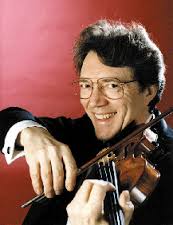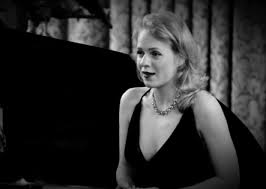The Dome, Brighton
Sunday 7 December
Barry Wordsworth may be basking in the delights of the Antipodes but that has not stopped the season from providing exceptional music-making. On paper, yesterday’s concert looked somewhat odd. Most programmes hang themselves on one or two key items but here we had eight shorter works reflecting a composer’s response to the life and landscape of the country as a whole.
In one sense they were all national composers for even Mendelssohn came to be seen as an English composer in the same way that Handel had done. His Hebrides Overture set the tone for masterly reflection on the impact of the sea. This was followed by Butterworth’s hauntingly subtle vision of A Shropshire Lad. In the opening passages the dawn eases in before the sun rises, but this is not the cathartic explosion we experience in Strauss but the gentle warming of an English summer sun. The structure was very finely caught by conductor Richard Balcombe who seems to have an innate sensitivity towards English music.
John Bradbury is far too rarely heard as a soloist. His magnificent New Year’s Day concert a few years ago remains firmly fixed in the memory, but his superb playing was very much in evidence for Vaughan Williams’ The Lark Ascending. Rarely have I sensed the various levels of the open-air as in this reading. While the woodwind provide hints of the bird life close to the ground and the cheerful folk melodies of the people below them, the lark sores above dipping and diving until at last it disappears not just from view but from our aural perspective. This certainly was a blithe spirit reflecting on the spiritual life of the world below. A masterly performance – when we will hear him again as soloist?
By contrast Hamish MacCunn’s youthful overture Land of the Mountain and the Flood seemed rather prosaic if easy to assimilate.
Sullivan’s Pirates of Penzance has little to do with Cornwall but the overture proved a cheerful opener to the second half before the more demanding Norfolk Rhapsody from Vaughan Williams. Though not as popular as the Lark its subtle beauty charmed us with ease.
The final two items were unarguably popular. Malcolm Arnold’s brief Four Cornish Dances have rather more to do with Cornwall than the Sullivan but they are distinctly tongue-in-cheek, particularly the rousing third dance in homage to Sankey & Moody. Then we came to Eric Coates and his London Suite, concluding with a rousing rendition of the Knightsbridge March. Most of us in the audience recalled this only too easily from In Town Tonight, but it was none the less nostalgically very welcome.
The next concert is the New Year’s Day Viennese Gala on 31 December, followed by a programme of Brahms and Beethoven on 11 January.



